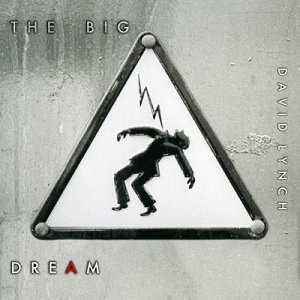 David Lynch is probably best known as the slightly weird, chain-smoking oddball auteur who has directed a wide and eclectic range of films and television programmes.
David Lynch is probably best known as the slightly weird, chain-smoking oddball auteur who has directed a wide and eclectic range of films and television programmes.
However, Lynch is also an exhibiting painter, photographer, animator, writer, spokesman for transcendental meditation, and all round multimedia renaissance man, with the uncanny ability to varnish everything he puts his hands on with a distinct, eclectic style; a vein of charismatic, rich – though often inexplicable – absurdness.
He has also started to dabble in music; unleashing his debut album ‘Crazy Clown Time‘ in 2011, and now follows this with the new LP ‘The Big Dream‘.
Lynch and musical collaborator Dean Hurley have cherry picked from various aspects of blues and early rock and roll, boiled these down through all manner of modern sonic technology and effects, to create enigmatic vistas of offbeat beauty, which often sound like the bewildered love children of the murky, spectral soundscapes of left-field Dubstep producer Burial, merged with the cut and paste ambient jams of Anti Con hip hop outfit Clouddead.
Above everything else, forming a slithering keystone to most of these songs, are Lynch’s vocals, sung in the form of an often fragile, slightly unsettling upper register, with a lineage and manner that harks to the unconventional vocal antics of such iconoclasts as Captain Beefheart and beat writer Jack Karouac. Across these songs he babbles, garbles, semi speaks/semi sings lyrics that are of a surreal, often improvised sounding nature; painting a set of emotions ranging from menace to what sounds like the choked tones of a man with a broken heart.
It is here where the use of various electronic bells and whistles can be most readily witnessed, with Lynch’s vocals often heavily processed, sometimes giving the impression that he has keyed into the main frame of the computer aboard an alien spacecraft, and is speaking to us from somewhere out in deep space.
Opening tune ‘The Big Dream‘ largely sets the scene; don’t expect any wild deviations in style with this collection of songs, no sudden strange off roads into crunk, grime or country metal. Indeed, this album will quickly suck the listener into its own sound world, perhaps more than any other record released this year. With this song, Lynch unleashes his offbeat vocalisations across a gentle bubbling of guitar sounds and ghostly little noises that are barely there; snatches and sketches which hover someplace between the vocals and a steady bedrock of beats that, although a little clumsy in comparison to what is achieved elsewhere, prevent the song from floating off into an alternate dimension.
‘Cold Wind Blowing‘ bleeds almost like some teenage torch ballad from the early Sixties – if it had been re-imagined by Cocteau Twins‘ Robin Guthrie. Snatches of echo heavy tremolo-like guitars glide and weave atmospheric sound veils, with stitches of maudlin bass and other misty effects over which Lynch’s lonesome voice awkwardly saunters.
The album’s only non-original composition is Bob Dylan‘s ‘The Ballad Of Hollis Brown‘. Here, emaciated, insect-infested flights of guitar click-clack as if fastened with rusty nails to a rickety carcass of tired, spilling drum beats, setting the scene for an arid retelling of Dylan’s story of an impoverished farmer who decides to spend his last pieces of eight on seven shotgun shells, to deliver him and his family from a living hell. The distant, scratching dryness of Lynch’s voice is treated such that you get the sensation he’s airing the shocking story from the confines of some rotting tin shack in the middle of dust bowl America, over a weak radio transmitter.
The most accessible songs of this collection are the singles ‘I’m Waiting Here‘ – featuring Swedish folk musician Lykke Li – and the wonderfully neat little package ‘Are You Sure‘, which see Lynch cast off the sub-space effects and combine to help bring the album to a beautiful close.
Although Lynch sang, played guitar, composed, co-arranged and co-produced this record, he describes himself as a ‘non-musician’, who initially picked up the guitar merely to see what sounds it makes. Possibly it was never his intention to be able to play anyone else’s tunes, which is refreshing in a world where most generally assume the path to being a musician is learning how to play ‘Stairway To Heaven‘ and spending a lifetime trying not to write a poor comparison.
Where Lynch goes next is anyone’s guess, but whatever direction he chooses it can be almost guaranteed that the result will, at least, be interesting.



